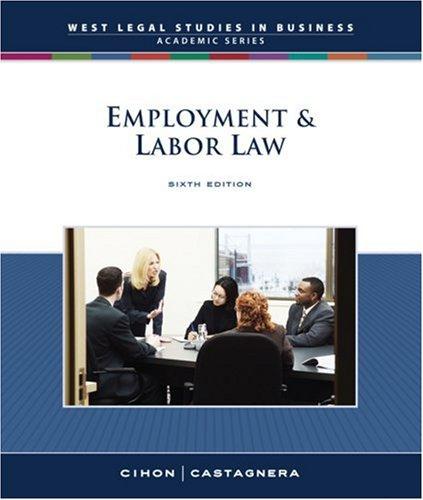1. In April 1978, public employee Dorothea Yoggerst heard an unconfirmed report that her boss, the director...
Question:
1. In April 1978, public employee Dorothea Yoggerst heard an unconfirmed report that her boss, the director of the Illinois Governor’s Office of Management and Human Development, had been discharged. While still at work, she asked a coworker,
“Did you hear the good news?”
Yoggerst was orally reprimanded by her supervisor. Subsequently, a written memorandum of the reprimand was placed in her personnel file.
Two months later, she resigned her job, citing this alleged infringement of her First Amendment right of free speech as her reason for leaving. Yoggerst sued four defendants, including the supervisor who reprimanded her and the personnel director.
An earlier case heard by the Supreme Court, Connick v. Myers, involved the firing of a public employee for distributing to her co-workers a questionnaire that challenged the trustworthiness of her superiors. In that case, the high court enunciated a two-prong test: (1) Did the speech in question address a matter of public concern? (2)
How did the employee’s right to speak her mind compare to the government’s interest in efficient operations? The U.S. Court of Appeals applied this same test in the Yoggerst case.
How do you think the courts ruled in these two cases? See Yoggerst v. Hedges and McDonough
[739 F.2d 293 (7th Cir. 1984)] and Connick v.
Myers [461 U.S. 138 (1983)].
Step by Step Answer:

Employment And Labor Law
ISBN: 94288
6th Edition
Authors: Patrick J. Cihon, James Ottavio Castagnera





